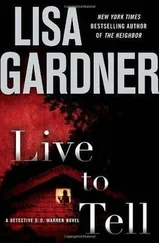I caught Jason watching us. He stood apart, his hands in his pockets, his face as impossible to read as ever And it hit me then:
I had married my husband to escape from my father. Did that make us family ?
My husband had married me because he wanted my child. Did that make us family ?
Clarissa became our daughter because she was born into this mess. Did that make us family ?
Maybe you simply have to start somewhere.
I held out my hand. Jason crossed to me. And slowly, very slowly, he reached out a finger and brushed Clarissa’s cheek.
“I will keep you safe,” he murmured. “I promise nothing bad will ever happen to you. I promise, I promise, I promise.”
Then he was clutching my hand and I could feel the true force of his emotions, the dark tide of all the things he would never tell me, but that I understood, one survivor to another, lurked beneath the surface.
He kissed me. He kissed me with Clarissa nestled between us, a hard kiss, a powerful kiss.
“I will always keep you safe,” he whispered again, his cheek against my cheek, his tears mingling with my tears. “I promise you, Sandy. I will never hurt you.”
And I believed him.
At 5:59, as Aidan Brewster was checking in for his weekly support group meeting, Jason Jones was putting in a movie for his daughter, and beginning to panic.
He’d called in sick to work. Didn’t know what else to do. Night was falling. Still no word from Sandy. Still no sign of the police. Ree had woken from her nap in the same quiet mood as before. They had played Candy Land and Chutes and Ladders and Go Fish.
Then they had sat at her teeny art table, him with his chin on his knees, and colored oversized pictures of Cinderella from Ree’s favorite coloring book. Mr. Smith did not magically appear on the front stoop and Ree stopped asking about either her cat or her mom. Instead, she regarded Jason with serious brown eyes that were beginning to haunt him.
After dinner-meatballs, angel hair pasta, and sliced cucumbers-he put in a movie. Ree had perked up in anticipation of the rare treat, and was now seated on the green love seat, holding Lil’ Bunny. Jason claimed he needed to do laundry and beat a hasty retreat to the basement.
There, he started pacing, and once he started, he couldn’t stop.
When he had first come home and realized Sandra was not in the house, he had been confused, perhaps even anxious. He’d gone through the normal steps: checked the basement, checked the attic, checked the old shed out back. Then he’d called her cell, only to hear it ring in her purse. That had led him to rifling the contents halfheartedly, looking through her little spiral notebook to see if she’d magically recorded a middle-of-the-night meeting. When at two-thirty A.M. he confirmed his wife hadn’t planned to go missing, he’d walked around the neighborhood, calling her name in a low whisper, much like how one might call a cat.
She wasn’t in her car. She wasn’t in his car. And she still wasn’t at home.
He’d sat down on the love seat to consider the matter.
The house had been locked when he’d come home, including the doorknob and two dead bolts. That had implied Sandy had done her usual bedtime routine. He’d checked the kitchen counter and discovered the graded papers, meaning Sandy had done her usual post-Ree routine.
So where had the evening gone wrong?
His wife was not perfect. Jason knew that as well as anyone. Sandy was young, she’d led a wild and reckless youth. Now, at the relatively tender age of nearly twenty-three, she was trying to raise a toddler while adjusting to a new job and living in an unfamiliar state. She’d been more distant since the school year began, first overly quiet, then since December, almost overly friendly, in a forced sort of way. He’d started thinking about going away for February vacation precisely because her mood had grown so tangled, so… different.
He was sure she got homesick, especially in the winter, though she never said. He was sure there were times she wished she could go out, feel at least a little bit young, though she never said.
He himself had wondered about how long she would remain married to him, though again, she never said.
He missed her now. That thought pained him. He had grown accustomed to coming home and finding her curled up in their bed, her sleeping position an uncanny mimic of their daughter’s. He liked her Southern drawl, and her addiction to Dr Pepper, and the way she smiled with one dimple appearing in her left cheek.
When she was quiet, there was a softness to her that soothed him. When she was giggling with Ree, there was a spark to her that electrified him.
He liked watching her read to their daughter. He liked listening to her hum as she puttered in the kitchen. He liked the way her hair fell around her face in a curly gold curtain, and how when she caught him watching her, it made her blush.
He didn’t know if she loved him. He had never figured that out. But for a while she had needed him, and for him, that had been enough.
She’s left me; that had been his first thought at three in the morning as he sat in the empty shadows of the family room. He had tried to make amends in February, and it had been a disaster. So Sandy had finally left him.
But then, half a beat later, he dismissed that conclusion: While Sandy may have been ambivalent about marriage, she was not ambivalent about Ree. Meaning if Sandy had left the house willingly, she would’ve taken Ree, and at the very least, grabbed her own purse. The absence of such steps led to a different conclusion: Sandy had not left willingly. Something bad had happened, here, inside Jason’s own home, while his daughter had slept upstairs. And he had no idea what.
Jason was a reserved man. He acknowledged that. He preferred logic to emotion, fact to supposition. It was one of the reasons he made a good reporter. He was excellent at sifting through vast pools of data and coming up with the perfect nugget of information that brought everything together. He did not get bogged down with outrage or shock or grief. He did not suffer any preconceived notions about Boston’s citizens or humanity in general.
Jason believed at all times that the worst could happen. That was a fact of life. And so, he armed himself with many other facts, perhaps believing, rather foolishly, that if he knew enough, this time he could be secure. His family would not suffer. His daughter would grow up safe and sound.
Except here he was, confronted by several great big unknowns, and he could feel his control already beginning to unravel.
The police had been gone for nearly six hours now, just the lone officer sitting in the car outside the house, switched out once, around five o’clock. Jason had thought having the police in his home all morning had been long and painful. He now realized their absence was far worse. What were the detectives doing? What was Sergeant D. D. Warren thinking? Had she taken the bait regarding his sex offender neighbor, or was he still considered the prize catch?
Did they have a warrant yet for the computer? Could they kick him out of the house, force him down to the station? Exactly what kind of evidence did they need?
Worse yet, if they arrested him, what would happen to Ree?
Jason walked around the coffee table again and again, hard tight circles that made him dizzy and still he couldn’t stop. He didn’t have local family, didn’t have close friends. Would the police contact Sandy’s father, ship Ree to Georgia, or invite Max up here?
And if Max came up here, exactly how much might Max say or do?
Jason needed a strategy, some kind of contingency plan.
Читать дальше












